 Server
Colocation
Server
Colocation
 CDN
Network
CDN
Network
 Linux Cloud
Hosting
Linux Cloud
Hosting
 VMware Public
Cloud
VMware Public
Cloud
 Multi-Cloud
Hosting
Multi-Cloud
Hosting
 Cloud
Server Hosting
Cloud
Server Hosting
 Kubernetes
Kubernetes
 API Gateway
API Gateway

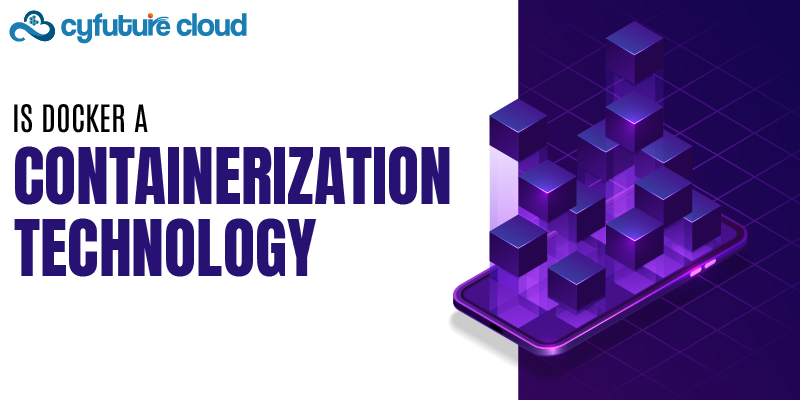
Docker has become a prominent platform in containerization technology, transforming how applications are created, launched, and controlled. Docker allows developers to create consistent environments running smoothly on platforms like cloud, hosting, and server environments by packaging applications and their dependencies into containers.
This article delves into the basics of Docker, its structure, and its importance in contemporary software development.
Containerization is a form of virtualization that involves encapsulating an application and its necessary components into a uniform entity known as a container. Unlike conventional virtualization, which uses a complete operating system for each virtual machine (VM), containers utilize the host operating system's kernel but keep separate environments. This method decreases excess and enhances resource usage, making containers lightweight and effective.
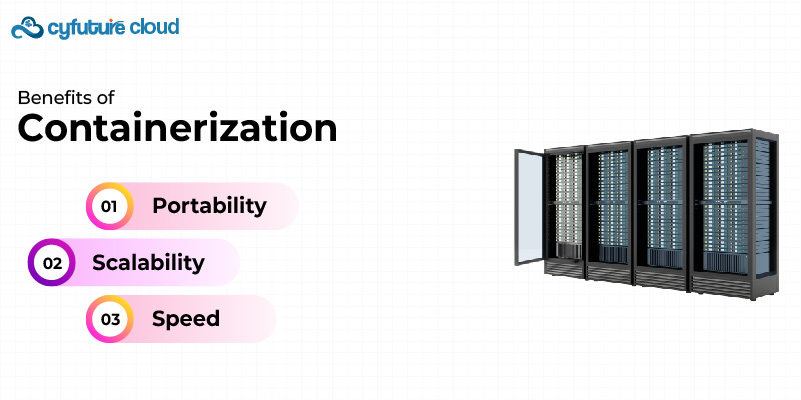
Containers can operate reliably in local machines, cloud hosting, or server platforms. The issue of "it works on my machine" is overcome with this portability, guaranteeing consistent behaviour of applications no matter where they are used.
Docker containers can rapidly adjust their size according to the level of demand. This flexibility is especially advantageous in cloud settings, where resources can be adjusted to handle changing workloads.
Containers' lightweight properties enable quick deployment and startup durations. Developers can increase productivity by building, testing, and deploying applications more quickly than traditional VMs.
Docker is a platform for containerization that makes it easier to develop, ship, and run applications with containers. Introduced in 2013, Docker has rapidly become the accepted norm in containerization, offering a strong platform for developers and system managers.
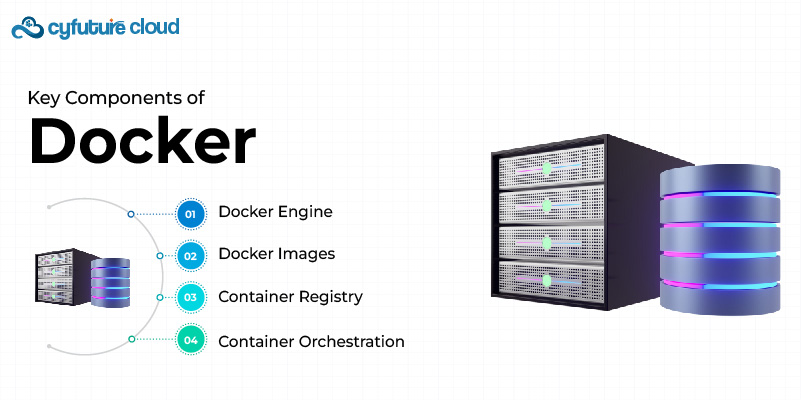
The main element of Docker, known as the Docker Engine. It is in charge of creating and running containers. The Docker package consists of the Docker daemon, responsible for handling container operations, and the Docker CLI, utilized to interact with Docker via the command line.
Docker images create containers and read-only blueprints with the required code, runtime, libraries, and configurations to execute an application. A Dockerfile is utilized to construct images, containing instructions for creating the image.
Although Docker can run containers independently, orchestration tools like Kubernetes or Docker Swarm are utilized to control groups of containers, offering functionalities like load balancing, scaling, and service discovery.
Docker's ability to work with cloud platforms makes it perfect for deploying modern applications. Developers can utilize Docker containers on cloud platforms like AWS, Google Cloud, and Microsoft Azure. This integration enables smooth adjustment and administration of applications in reaction to changing demand.
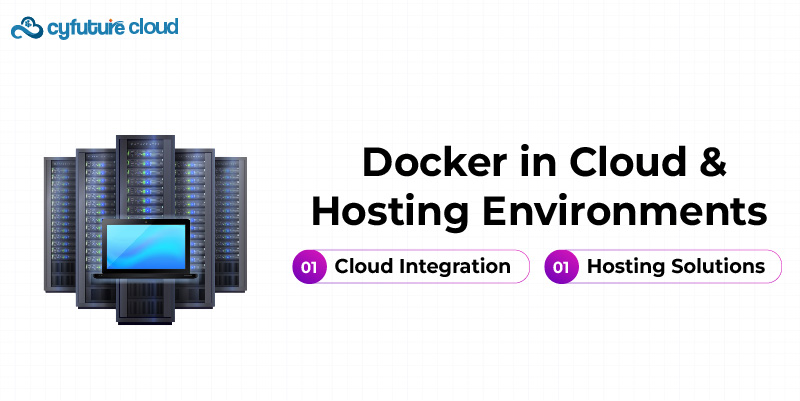
Docker's ability to work with cloud platforms makes it perfect for deploying modern applications. Developers can launch Docker containers on various cloud platforms, such as:
- AWS
- Google Cloud
- Microsoft Azure
This integration enables smooth scaling and administration of applications by changing demand.
Numerous hosting services support Docker, allowing users to launch containerized applications quickly. By utilizing Docker, developers can skip the complications linked with conventional hosting configurations, enabling them to concentrate on developing applications instead of managing infrastructure.
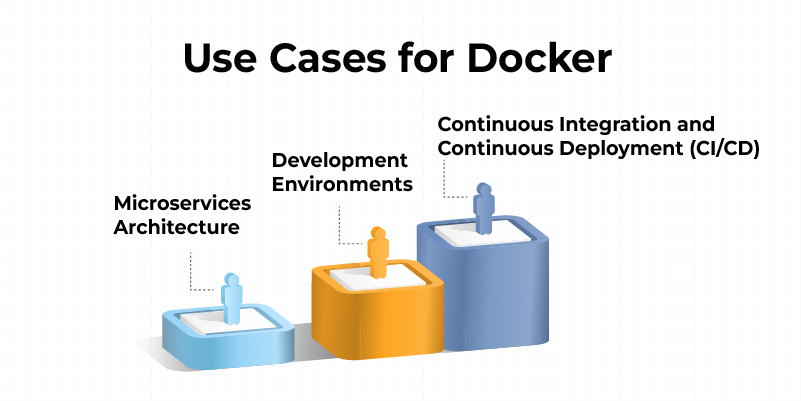
Docker is ideal for microservices architecture, where applications comprise small, independent services that interact through APIs. Every microservice can be packaged into a container and released separately. It enables more flexibility and quicker iteration cycles.
Docker is essential in CI/CD pipelines. It allows for automatic testing and deployment of applications. Using containers, developers can guarantee that their code operates in a consistent environment, from testing to production.
Developers can use Docker to create isolated development environments that mirror production settings. This consistency reduces the likelihood of environment-related bugs and accelerates the development process.
Docker, a robust containerization technology, has revolutionized how applications are created, released, and maintained. Developers in cloud, hosting, and server environments find it indispensable due to its capability to generate lightweight, transportable containers. Through Docker, companies can enhance their application deployments to improve efficiency, scalability, and consistency, leading to the development of creative solutions in the constantly changing technology environment. As containerization becomes more popular, Docker is expected to become even more dominant in the industry, leading to more improvements in software development techniques.

Let’s talk about the future, and make it happen!
By continuing to use and navigate this website, you are agreeing to the use of cookies.
Find out more


